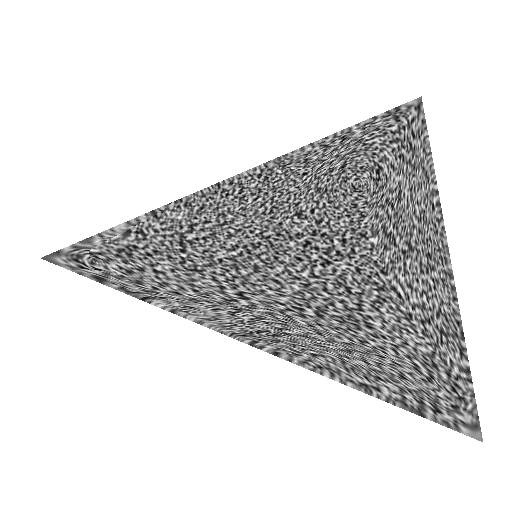UFLIC On Surface
Mar 16, 0304
texture in the UV space with flow extended to ghost cells
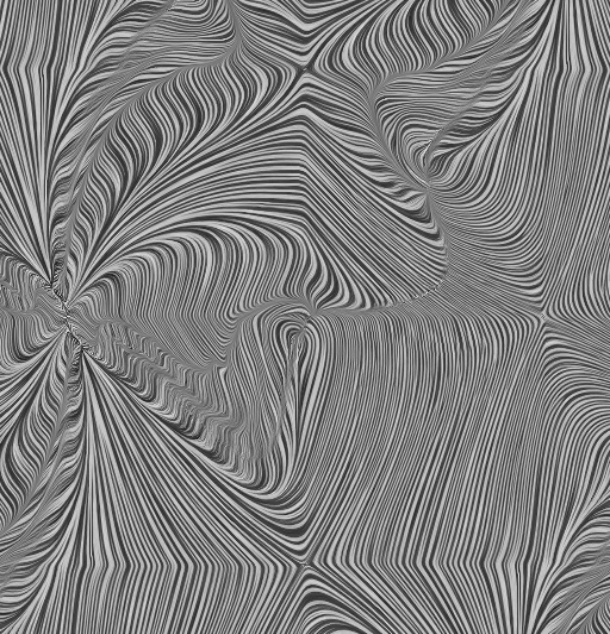
these are the param settings to generate the texture above (note the redued step size):
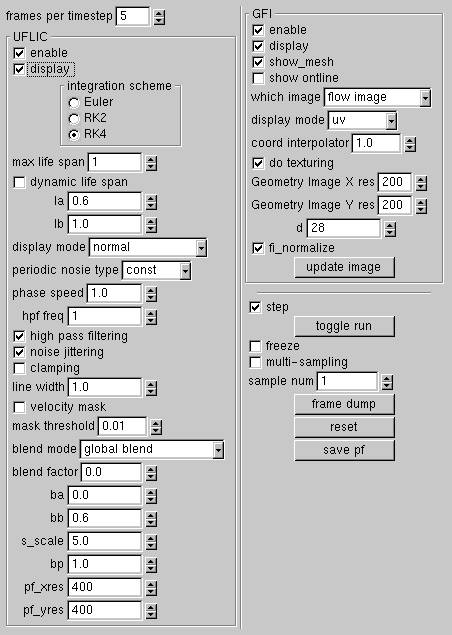
mapped onto the wing:
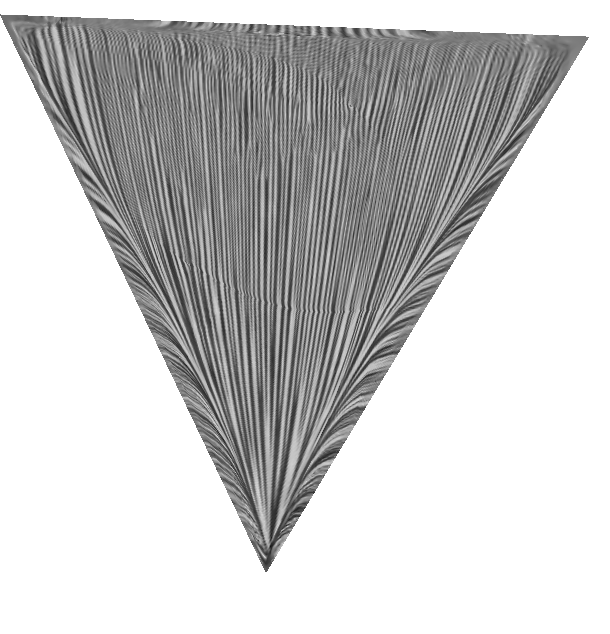
some "wiggling" when the patterns coming across the cuts can be seen. However, some cuts are joined perfectly as shown below:
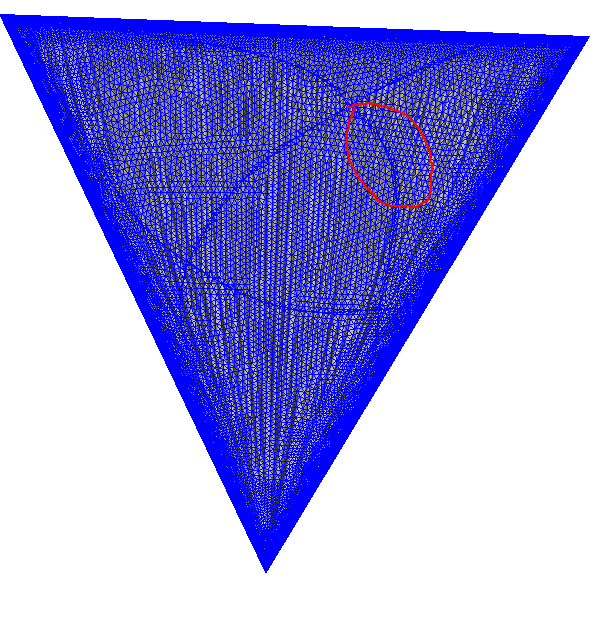
the other side of the wing:

the funny discontinuity seam above is not a cut. Instead, it is a
band of skiiny triangles introduced by the algorithm of geometry
image generation:

close-in shot of these "bands"::
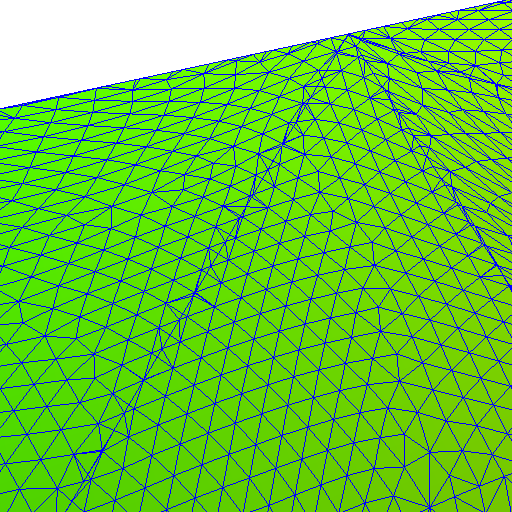
The triangles on these bands are highly irregular, as opposed to regularly-shaped faces surrounding them.
closer examination of the deformation sequence (from UV space to P
space, as shown below) indicates that these triangles are place where
most distortion happens. Please pay attention to marked region.





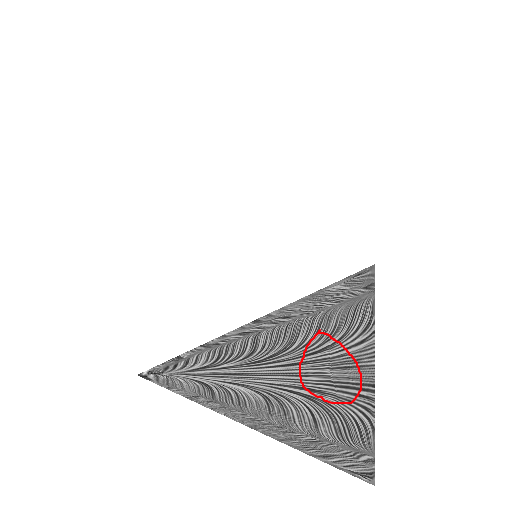
close-in of the above:
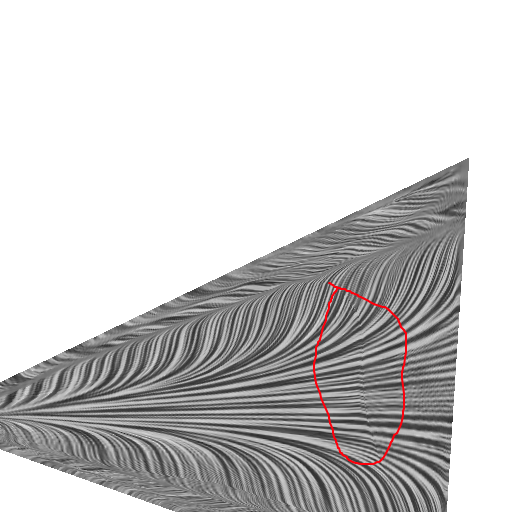
Here's my proposed solution/theory. We need to capture the distortion
of the UV flow faithfuly, so that when the UV-space texture mapped back
in the P-space, the patterns can be "un-distorted". In order to do
that, the sampling rate of the UV-space flow, as well as the resolution
of the UV-space texture, need to be high.
Also, the step size need to be small enough so that we can capture the
distortion faithfuly within the skinny triangle in the UV space, like
this:

the following picture shows how big step size missed the "refraction"
part above and create intersecting patterns in the texture:
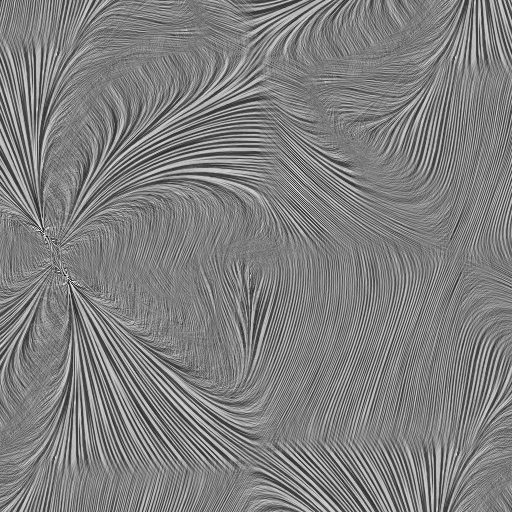
the picture above also shows that the same discontinuity can happen
across the cuts (in the above image, this is shown as crossing patterns
along the boundary between valid regions and ghost cells).
the following image shows the skinny triangulation near the
border of the UV space (i.e. cuts int he P-space). This is very similar
to the "non-cuts" bands discussed above.
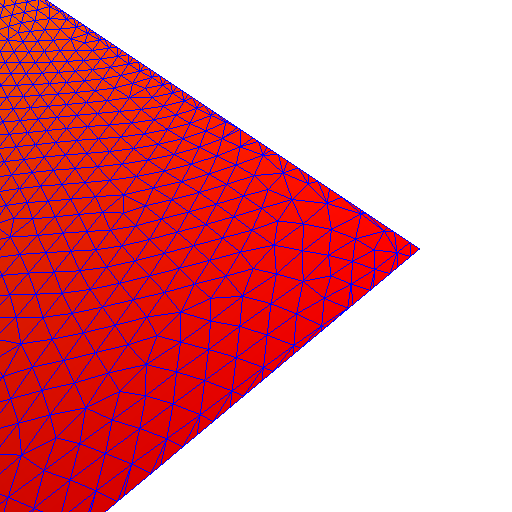
flow "edelta":

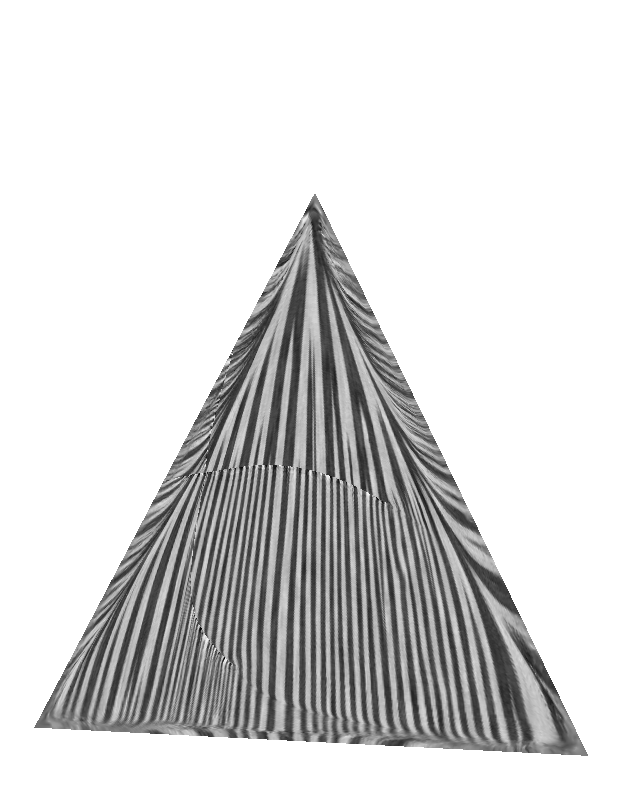
UV space texture
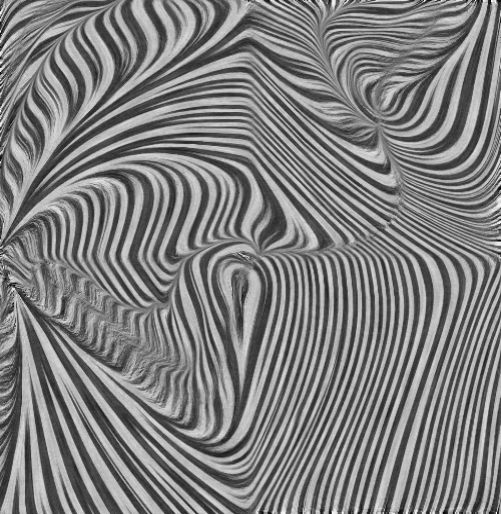
Test cases:
flow along the long axis of the wing
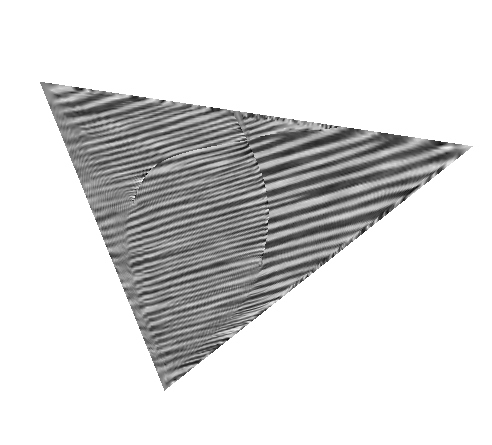
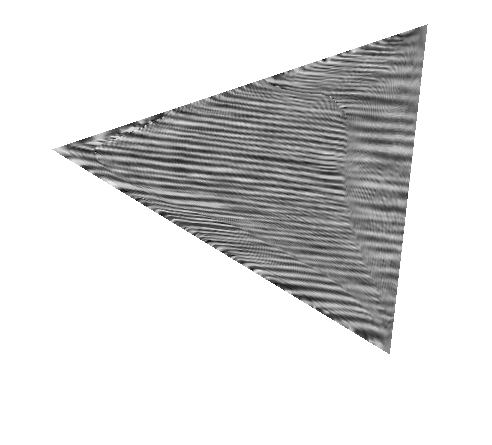
flow along the short axis
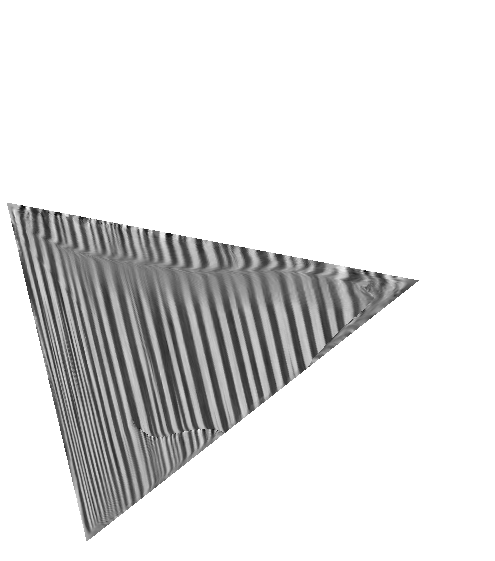
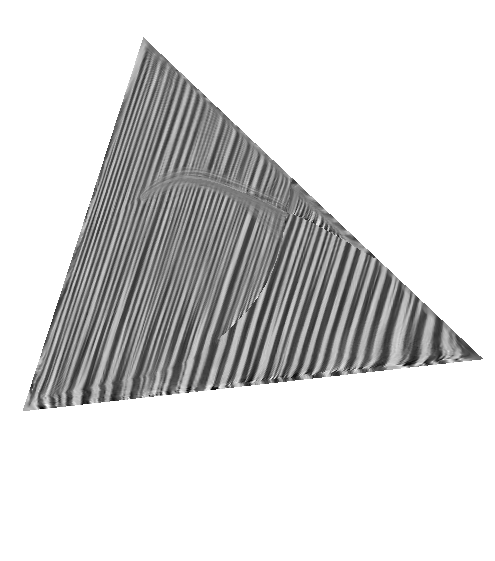
flow orthogonal to the wing plane:
